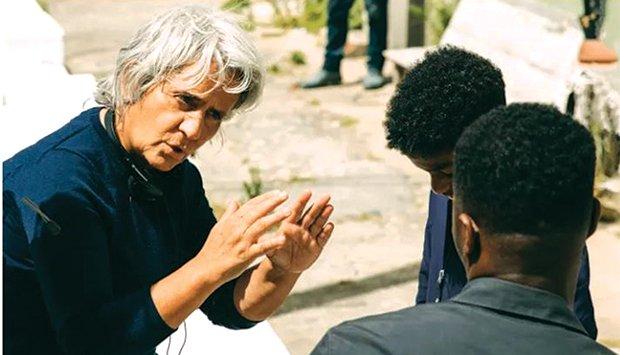Africa-Press – Angola. The Cine Geração project promotes, yesterday, from 18:30, in the auditorium of Geração 80, in the urban district of Ingombota, in Luanda, the screening of the short films “Muxima”, “The Beginning, the Middle, the End and the Infinite ” and “Pele Escura”, with scenes intrinsic to the history of Angola.
The exhibition of the films, all made in the diaspora, is part of another session to promote the national seventh art, held by Geração 80.
According to information provided by the production of the project, after the screening of the films, several open conversations are scheduled to reflect on various perspectives and approaches to the themes that the films address, among cinephiles.
“Muxima” is a documentary made by Brazilian filmmaker and journalist Juca Badaró, it addresses themes such as colonialism, pain and faith that are mixed in the largest religious manifestation in Angola.
The film, with nine minutes, also addresses issues such as memories and religious traditions, crossing similar experiences lived by the Angolan and Brazilian people throughout the Portuguese colonial period and the colonial marks that the peoples carry until today.
The idea of producing the film came from the experience of participating in festivities at the Sanctuary of Nossa Senhora da Muxima, while residing in Angola, having recorded the procession, masses and pilgrimage for two days.
The film, which was shot entirely in Angola in 2015, is inspired by one of the largest Angolan religious manifestations, the “Procissão à Nossa Senhora da Muxima”.
The project includes the production of a poster by Renata Semayangue, voiceover by Carlos Capitango, translation of the kimbundu by Pedro Fernandes Lopes and translation into French by Priscila Rosin.
The film was distinguished with the “Best Documentary Screenplay Award” at this year’s Vassouras Film Festival in Rio de Janeiro, Brazil. It has already been selected for screening at the international festivals of Clapperboard Golden Festival (2022) and First-Time Filmaker Sessions by Lift-Off Global Network (2022).
The Beginning
Directed by Pedro Coquenão, “The Principle, the Middle, the End and the Infinite” addresses topics such as the pattern itself, racism, anti-racism, colonialism and neocolonialism, and mental health.
The film is a 29-minute documentary that tells the story of two beings from a distant time and space, immune to almost everything, who burned themselves physically and mentally when they came into contact with current normality. It features conversations on topics such as water, mobility, fair trade, mental health and complicity, in addition to contact with reels with field recordings made in Angola in the 1950s, as well as time travel and the obsessive use of electronic drums by the 80s”.
The film emerged from the hangover of an artistic residency starring Coquenão, in which he crossed pieces from the Lisbon Museum collection, in which paintings made on the walls of that space, pieces from the museum collection and ambient music were in evidence, whose messages were confronted.
The short film was created as an attempt to create a fictional piece that derives from realism and fiction, extracted from what the exhibition covered.
Some of them are about preserving heritage, looking at memory, history, the way people deal with art.
Filmed in 2020, it was contested in 2021, in an open letter, by a group of Portuguese historians and university professors, who considered it to be “a provocation” and “a petty insult to history and ancestors”, “a provocation, and a coup”. against national honor”.
“Dark skin”
With an original idea by Kalaf Epalanga and directed by Graça Castanheira, the film represents the journey from the periphery to the center of six Afro-descendant friends, inscribing themselves in the white landscape and its external signs of prosperity. With 15 minutes in length, the film focuses on racism, but provokes an intense reflection on the center and the periphery, blacks and whites, racism and inclusion.
Wilson André, Rúben Rosário, Nayela Simões, Karina Silva, Nilsa Pires and Paulo Pascoal are the actors who bring the story to life, in whose film it was recorded last year, and created as a pretext to discuss racism.
Born in the province of Huíla, Graça Castanheira is the daughter of settlers and for some time has felt the need to extrapolate her certainties as a non-racist.
For More News And Analysis About Angola Follow Africa-Press






